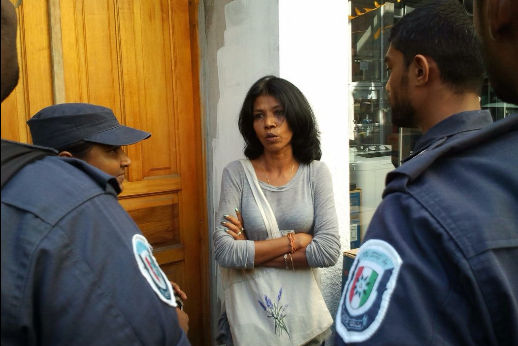Whistleblower declared an apostate arrested on return to Maldives
Velezinee is accused of mocking Islam, according to the arrest warrant.

14 Nov 2018, 09:00
Aishath Velezinee, an outspoken whistleblower as a former member of the judicial watchdog, was arrested Tuesday upon her return to the Maldives after residing overseas for several years.
She was taken into custody in relation to an ongoing investigation, a police spokesman said, declining to provide any further information.
Velezinee is accused of “mocking Islam and leaving the principles of Islam” in videos posted on her Twitter and Facebook accounts, according to the arrest warrant seen by the Maldives Independent.
As her posts had drawn “displeasure and hatred” from the public, Velezinee needed to be in custody both for her own safety and protection of public order, reads the reasons cited for the arrest.
Become a member
Get full access to our archive and personalise your experience.
Already a member?
Discussion
No comments yet. Be the first to share your thoughts!
No comments yet. Be the first to join the conversation!
Join the Conversation
Sign in to share your thoughts under an alias and take part in the discussion. Independent journalism thrives on open, respectful debate — your voice matters.




